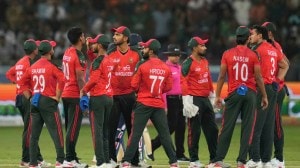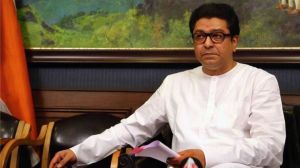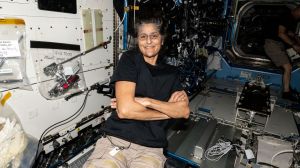Panel seeks to reduce load for FE students
MUMBAI, JANUARY 31: A committee of principals and heads of various engineering departments working to revise the curriculum of First Year ...

MUMBAI, JANUARY 31: A committee of principals and heads of various engineering departments working to revise the curriculum of First Year Engineering FE students will be meeting on February 1. On the anvil is the suggestion to reduce the number of examination papers from eight to six. This is because students are unable to cope with the FE syllabus right after HSC . The committee which aims at reducing the load on students hopes to complete the job after a few more sittings.
Constituted almost three years ago, the committee8217;s suggestions and recommendations have not been incorporated to date as the proposals were vetoed by the Academic Council of the University of Mumbai which is authorised to pass any such changes in syllabi.
8220;In the past, the revised curriculum did not really reduce the students8217; load,8221; says Dr D J Shah, principal, DJ Sanghvi College of Engineering, who is on the committee. 8220;Technically, the papers were reduced from eight to six but there was an attempt to accomodate many of the topics from the two extra papers in the proposed six. This defeats the purpose,8221; says Dr Shah.
The current syllabus for FE students is enormous and the time period is short. Students have found it difficult to cope when thety come in after completing the HSC exams.8220;FE students face unnecessary strain from the beginning. For this reason, there are proposals to remove some of the topics from their syllabus and put it in another semester,8221; says Dr PV Parmeshwaran, chairperson of Board of Studies, civil engineering department. If approved, the revised syllabus would comprise about 70 to 80 per cent of the existing one.
The committee also plans on updating the curriculum in individual subjects. For instance, computer science students are still doing Lotus and Pascal, instead of newer languages. Says Poorvi Patel from VJTI, 8220;Java and C is the market demand, but our syllabus does not cover it. So we have to take private classes. What we learn in our classes is irrelevant once we start working.8221;
8220;The curriculm is very theory-based with little or no practical grounding or problem-solving,8221; says Dr JVN Rao, principal St Francis institute of Technology. 8220;So often, second-third students from the electrical department do not know how to change a fuse. Or full-fledged electronic engineers cannot detect what8217;s wrong with a TV or a music system. Civil engineers are not sure about minor plumbing works such as changing washers, replacing pipeline joints. If a BE cannot do even this much, what has he been doing in college?8221; questions Rao.
The committee will be tackling these and other issues like the tendency of students to want all instruction in capsule form, and shun reference work. The mushrooming of coaching classes has had a negative impact with studentslooking for short-term gains.
The committee will be taking up these issues in subsequent meetings. Currently, they are concerned with the FE syllabus, that has to be presented to the Academic Council and if approved will be implemented for the year 2001-2002.
- 01
- 02
- 03
- 04
- 05






























